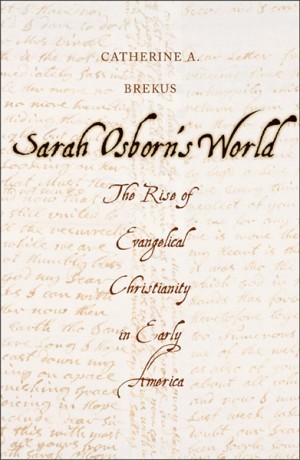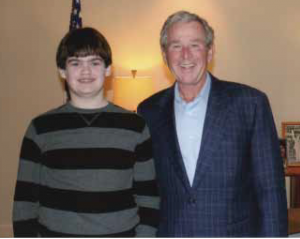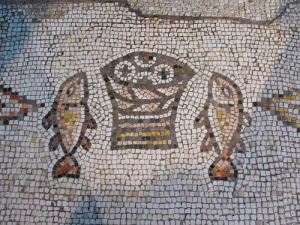Justin Taylor's Blog, page 179
December 4, 2012
Three Liberating Limitations in Ministry
Zack Eswine, Sensing Jesus: Life and Ministry as a Human Being:
First, we can only be at one place at one time, which means that Jesus will teach most of us to live a local life.
We will resist and want to act like we are omnipresent. But he will patiently teach us that as human beings we cannot be, and this admission will glorify God.
Others will likewise resist Jesus and want you to be omnipresent. They will use his name to praise or critique you accordingly, but they too will have to learn that only Jesus can be with them wherever they are at all times. This fact is actually good news for them and for us. . . .
Second, we cannot do everything that needs to be done, which means that Jesus will teach us to live with the things that we can neither control nor fix.
We will want to resist Jesus and act as if we are omnipotent, but we will harm others and ourselves when we try.
Others will also resist Jesus. Using his name, they will praise or critique us according to their desire that we fix everything for them and that we do it immediately. But they will have to learn too that only Jesus can fix everything and that there are some things Jesus leaves unfixed for his glory. . . .
Third, we are unable to know everyone or everything, which means that Jesus will teach us to live with ignorance, our own and others’. In other words, we are not omniscient.
Jesus will require us to stop pretending that we are.
Others will resist Jesus and in his name praise us or critique us on the basis of their estimation of what we should know. They will have to learn that only Jesus knows everything they need; his invitation to faith and to trust in his knowing is a good one. . . .
Ask yourself this question: Which are you more tempted to pretend that you are: an everywhere-for-all, a fix-it-all, or a know-it-all? What do you feel you will lose if you stop pretending in these ways and entrust yourself to Jesus? . . .
Jesus invites everywhere-for-alls, fix-it-alls, and know-it-alls to the cross, the empty tomb, and the throne of his grace for their time of need.
—Zack Eswine, Sensing Jesus: Life and Ministry as a Human Being (Wheaton, IL: Crossway, 2012), 55-56.
HT: Crossway Blog
“Simply One of the Best Books I Have Read on the Life of an American Evangelical”
Thomas Kidd—author of The Great Awakening: The Roots of Evangelical Christianity in Colonial America, Patrick Henry: First Among Patriots, and God of Liberty: A Religious History of the American Revolution—writes:
People love biographies, and I am regularly asked to recommend good ones during the lead-up to Christmas. One of the most frustrating things about the bookselling business is that there is no necessary correlation between the prominent placement of books at the bookstore, or the review of them in newspapers and magazines, and the enduring quality of those books. True, bestselling books are often very well written (lively prose is the specialty of the trade press), but from a historical perspective, they often lack substance or new research.
Nowhere is the problem more acute than in biographies of America’s Founders. Don’t get me wrong: there are popular biographies of the Founders, including ones written by non-academic historians, that are terrific. . . .
But some popular writers simply become biography factories, churning out a new one on some well-known figure every year (or more), just in time for Christmas, often repackaging old myths and inaccuracies. Those sorts of books are readily available at Barnes and Noble and your airport’s bookstore, too.
So, as a public service announcement, here are five biographies I heartily recommend for your Christmas list. I have limited myself to religious biographies . . . written by scholars, but ones which speak to a more general audience. I am focusing here on books that will not be at the “front of the store” (or perhaps not in the store at all) this Christmas, either because they are not new, or because they were not published by a major trade press.
You can read his Top 5 List here.
 In particular, notice his commendation of Catherine Brekus’s Sarah Osborn’s World: The Rise of Evangelical Christianity in Early America (Yale University Press).
In particular, notice his commendation of Catherine Brekus’s Sarah Osborn’s World: The Rise of Evangelical Christianity in Early America (Yale University Press).
A brand-new biography of Osborn, perhaps the most influential woman in America’s First Great Awakening. In my jacket endorsement of the book, I said ”This will become the best biography we have on a female evangelical in colonial America, following naturally from Brekus’s earlier book on women preachers in early America. But I would also recommend this as simply one of the best books I have read on the life of an American evangelical, female or male.”
Here are a couple of other glowing endorsements for this new book:
Sarah Osborn’s World reflects unusually industrious research, profound historical insight, and extraordinary human empathy. It offers a superb depiction of the long and complex life of a woman who was at the heart of eighteenth-century American evangelical history. The remarkable character of that life is matched by the remarkable success of this book.
—Mark A. Noll
Sarah Osborn’s World is written beautifully and reads like a novel. The beginning undergraduate or non-historian will turn the pages with delight, but the academic specialist will long ponder the significance of this book for his or her own work. The life of Sarah Osborn is not only narrated splendidly on its own terms but also carefully placed to illuminate a wide range of scholarly discussions of religion and culture in which Brekus is well-informed. There is no better biographical study of an eighteenth-century religious woman.
—Bruce Hindmarsh
John Piper’s Reading of “The Innkeeper”
John Piper reads his classic poem, The Innkeeper, below. Here is a 50% off sale (hardcover with Glenn Harrington’s beautiful paintings), so for a limited time it is $10 instead of $20.
December 3, 2012
What Ravi Zacharias Said to a Founder-Leader of Hamas
Ravi Zacharias may be considered a public intellectual by some, but first and foremost he is an evangelist of the gospel of Jesus Christ:
HT: Michael Bird
November 30, 2012
An Interview with Bruce Ware on the Humanity of Christ
A conversation about the arguments in Bruce Ware’s new book, The Man Christ Jesus: Theological Reflections on the Humanity of Christ, which D. A. Carson suggests is “Warfield’s christology re-written for the devout layperson who wants to understand Jesus better and thereby trust, obey, and love him more whole-heartedly.”
00:30: What drove you (Bruce Ware) to write this book?
01:50: You start the book with a discussion of Philippians 2. Why did you choose to reference Philippians? Help us especially understand what it means when Paul says that Jesus “emptied himself” and became a servant.
03:57: When I (Dane Ortlund) think about the supernatural things Jesus did, my default mode is to think that Jesus is “falling back on his deity.” Help us understand the way you deconstruct and provide a corrective to that logic.
06:23: You have a chapter in the book that discusses Christ’s impeccability. What does it mean that Jesus was impeccable and how does that connect to his humanity? What does that mean for believers today?
09:25: Why did Jesus have to come as a man and not a woman?
11:43: What would you say to a woman who says to you, “Ok Dr. Ware, Jesus came as a male. Is it not true then that Jesus doesn’t really understand me as a woman?”
14:00: Why did Jesus have to come and be a man to save us? I can understand why only God could save me, but why did the second person of the trinity also need to become fully human and, it seems, do what Psalm 49 says can’t be done?
18:13: Is Jesus still a man today?
20:08: Why is knowing that Jesus’s incarnation is not a “parenthesis” cause for worship?
November 29, 2012
Love, Guilt, Fatherhood, and Asperger’s
 Political reporter Ron Fournier of The National Journal has a poignant article in their latest issue full of regret and guilt and common-grace wisdom and insight about fathers and sons and disabilities—and lessons learned from two of our former presidents.
Political reporter Ron Fournier of The National Journal has a poignant article in their latest issue full of regret and guilt and common-grace wisdom and insight about fathers and sons and disabilities—and lessons learned from two of our former presidents.
Here’s how it begins:
Our noses were practically touching the wall. Tall, white, and seamless, it was the only thing standing between us and the president of the United States. “Stay right there,” a White House aide told me, my wife, and three children. “The president will be with you in a minute.” Suddenly, the wall opened; it was a hidden door to the Oval Office. “Come on in, Fournier!” shouted George W. Bush. “Who ya’ dragging in?”
It was my last day covering the White House for the Associated Press, and this 2003 visit was a courtesy that presidents traditionally afford departing correspondents. I introduced my wife, Lori, and two daughters, Holly and Abby, before turning to their 5-year-old brother. “Where’s Barney?” Tyler asked.
“He’s coming!” Bush replied as his Scottish terrier scampered into the room. “Let’s do a photo!”
As the most powerful man on Earth prepared to pose for a picture, my son launched into a one-sided conversation, firing off one choppy phrase after another with machine-gun delivery. “Scottish terriers are called Scotties, they originated from Scotland, they can be traced back to a single female named Splinter II, President Roosevelt had one, he called it Fala, Dad says he kept him in the office down there when he was swimming, there’s one in Monopoly, my favorite is the car. . . .”
I cringed. Tyler is loving, charming, and brilliant—he has a photographic memory—but he lacks basic social skills. He doesn’t know when he’s being too loud or when he’s talking too much. He can’t read facial expressions to tell when somebody is sad, curious, or bored. He has a difficult time seeing how others view him. Tyler is what polite company calls awkward. I’ve watched adults respond to him with annoyed looks or pity. Bullies call him goofy, or worse.
But the president was enchanted. Waiting for Tyler to take a breath, he quickly changed the subject with a joke. “Look at your shoes,” Bush told Tyler while putting a hand on his shoulder and steering him toward the photographer. “They’re ugly. Just like your dad’s.” Tyler laughed.
Ten minutes later, we were walking out of the Oval Office when Bush grabbed me by the elbow. “Love that boy,” he said, holding my eyes.
I thought I understood what he meant. It took me years to realize my mistake.
It’s well worth reading the whole thing.
HT: @JSDeckard
Is Scientism Defensible?
Austin L. Hughes, Carolina Distinguished Professor of Biological Sciences at the University of South Carolina, writing in The New Atlantis, asks:
Is scientism defensible? Is it really true that natural science provides a satisfying and reasonably complete account of everything we see, experience, and seek to understand — of every phenomenon in the universe? And is it true that science is more capable, even singularly capable, of answering the questions that once were addressed by philosophy? This subject is too large to tackle all at once. But by looking briefly at the modern understandings of science and philosophy on which scientism rests, and examining a few case studies of the attempt to supplant philosophy entirely with science, we might get a sense of how the reach of scientism exceeds its grasp.
You can read the whole thing here.
November 27, 2012
On Being or Hosting a Guest Preacher
Preached recently at a church that hosted me with remarkable thoughtfulness and it caused me to reflect on how inviting churches can host as well as my most recent experience, and also what should be the specific aims of a guest preacher. To be filtered through your own wisdom and good sense.
He offers several suggestions for the inviting church and for the guest preacher. (I’d add one more, something I learned from Danny Akin about a guest pastor’s dress code: ask the church what kind of attire the preaching pastor usually wears and go with that.)
See also Don Whitney’s “Ten Questions to Ask to Treat a Guest Speaker Well.”
Christianity: Where Every Foreign Country Is Fatherland and Every Fatherland Is Foreign
 From the unknown author of The Epistle to Diognetus, Chapter 5, written perhaps between 117 and 225 AD, capturing the paradoxical nature of Christian identity and practice:
From the unknown author of The Epistle to Diognetus, Chapter 5, written perhaps between 117 and 225 AD, capturing the paradoxical nature of Christian identity and practice:
For Christians are not distinguished from the rest of humanity by country, language, or custom.
For nowhere do they live in cities of their own, nor do they speak some unusual dialect, nor do they practice an eccentric way of life.
This teaching of theirs has not been discovered by the thought and reflection of ingenious people, nor do they promote any human doctrine, as some do.
But while they live in both Greek and barbarian cities, as each one’s lot was cast, and follow the local customs in dress and food and other aspects of life, at the same time they demonstrate the remarkable and admittedly unusual character of their own citizenship.
They live in their own countries, but only as nonresidents; they participate in everything as citizens, and endure everything as foreigners.
Every foreign country is their fatherland, and every fatherland is foreign.
They marry like everyone else, and have children, but they do not expose their offspring [to kill them].
They share their food but not their wives.
They are in the flesh, but they do not live according to the flesh.
They live on earth, but their citizenship is in heaven.
They obey the established laws; indeed in their private lives they transcend the laws.
They love everyone, and by everyone they are persecuted.
They are unknown, yet they are condemned; they are put to death, yet they are brought to life.
They are poor, yet they make many rich; they are in need of everything, yet they abound in everything.
They are dishonored, yet they are glorified in their dishonor; they are slandered, yet they are vindicated.
They are cursed, yet they bless; they are insulted, yet they offer respect.
When they do good, they are punished as evildoers; when they are punished, they rejoice as though brought to life.
By the Jews they are assaulted as foreigners, and by the Greeks they are persecuted, yet those who hate them are unable to give a reason for their hostility.
No Little Person
It was a long time ago, in the summer of 1966, that Doug [Nichols] was working for Operation Mobilization and was stationed in London during their big annual conference. He was assigned to the clean-up crew. One night at around 12:30 AM he was sweeping the steps at the conference center when an older gentleman approached him and asked if this was where the conference was being held. Doug said that it was, but that just about everyone had already gone to bed. This man was dressed very simply and had just a small bag with him. He said that he was attending the conference. Doug replied he would try to find him a place to sleep and led him to a room where about 50 people were bunked down on the floor. The older gentleman had nothing to sleep on, so Doug laid down some padding and a blanket and offered a towel for a pillow. The man said that would be just fine and that he appreciated it very much.
Doug asked the man if he had been able to eat dinner. It turns out that he hadn’t eaten since he had been travelling all day. Doug took him to the dining room but it was locked. He soon jimmied the lock and found some cornflakes and milk and bread and jam. As the man ate, the two began to talk. The man said that he and his wife had been working in Switzerland for several years, where he had a small ministry that served hippies and travellers. He spoke about his work and spoke about some of the people he had seen turn to Christ. When he finished eating, both men turned in for the night.
Doug woke up the next morning only to find out that he was in big trouble. The conference leaders came to him and said, “Don’t you know who it was that you put on the floor last night? That’s Francis Schaeffer! He’s the speaker for this conference! We had a whole room set aside for him!”
Doug had no idea that he was sleeping on the floor next to a celebrity, that he had told a man to sleep on the floor who had a profoundly important ministry. He had no idea that this man had helped shape the Christian church of that day, and really, the church of our day. And Schaeffer never let on. In humility he had accepted his lot and been grateful for it.
You can read the whole thing here.
David Wells shares an anecdote:
One of my most vivid memories of Schaeffer was waiting for him to arrive at our small London apartment where a group of students had met to hear him speak. Schaeffer was an hour late because he had been outside in the taxi talking to the driver about the Christian gospel! But this incident exemplified what I had come to admire about him. His sense of both the greatness and tragedy of human life pervaded everything he said as did the corresponding sense that God has spoken and has given to us truth which is unshakable.
In February Crossway will publish Schaeffer on the Christian Life by William Edgar, professor of apologetics at Westminster Theological Seminary.
In the book Edgar recounts how his instructor at Harvard, Harold O.J. Brown, encouraged him to visit l’Abri during a summer vacation to Europe in 1964. At the time, Edgar was an unbeliever, holding to the existential philosophy of Camus. But the visit to l’Abri turned out to be life-changing. Here’s his conversion account, after the first night of listening to a lecture and interacting with the community:
I made my way upstairs to the little chamber outside the bedrooms where Francis Schaeffer liked to counsel people. With that same profound face, its warm grin, and the clear sense that he really cared about me as well as the issues we needed to discuss, he asked whether I had thought of my question.
I spouted out my question about relevance, and he came back with an extensive, thoughtful reply. His answer included the “free-will defense” for the problem of evil, and the importance of human significance, owing to our being made after God’s image. We went back and forth.
After a couple of hours, I just knew this was all true. If it is possible to feel the Holy Spirit come into one’s heart, I could, and I did. I was a Christian!
Fran then directed me to pray, which I had never done, at least in any sort of personal manner. What should I say, I asked? Just “thank you” will do very nicely, he replied. So, my face bathed in tears, I thanked the good Lord for leading me into his family. Fran frequently accompanied my phrases with groans of agreement, which I would later learn is a standard evangelical way of praying together. He then prayed for me, and we prayed together for Joe [= Harold O.J. Brown] and for many other things we seemed to care about mutually.
Less than twenty four hours after my arrival at l’Abri my life was completely turned upside down. Or was it right side up?
For more on Schaeffer, see:
Colin Duriez, Francis Schaeffer: An Authentic Life
Barry Hankins, Francis Schaeffer And the Shaping of Evangelical America
Lane Dennis, ed., The Letters of Francis A. Schaeffer
Bruce Little, ed., Francis Schaeffer: A Mind and Heart for God
Bryan Follis, Truth with Love: The Apologetics of Francis Schaeffer
J. I. Packer, “No Little Person“
Jerram Barrs, “Francis Schaeffer: The Man and His Message“
Credo Magazine, “Francis Schaeffer at 100“
William Edgar, Schaeffer on the Christian Life: Countercultural Spirituality , Theologians on the Christian Life Series
Justin Taylor's Blog
- Justin Taylor's profile
- 44 followers




